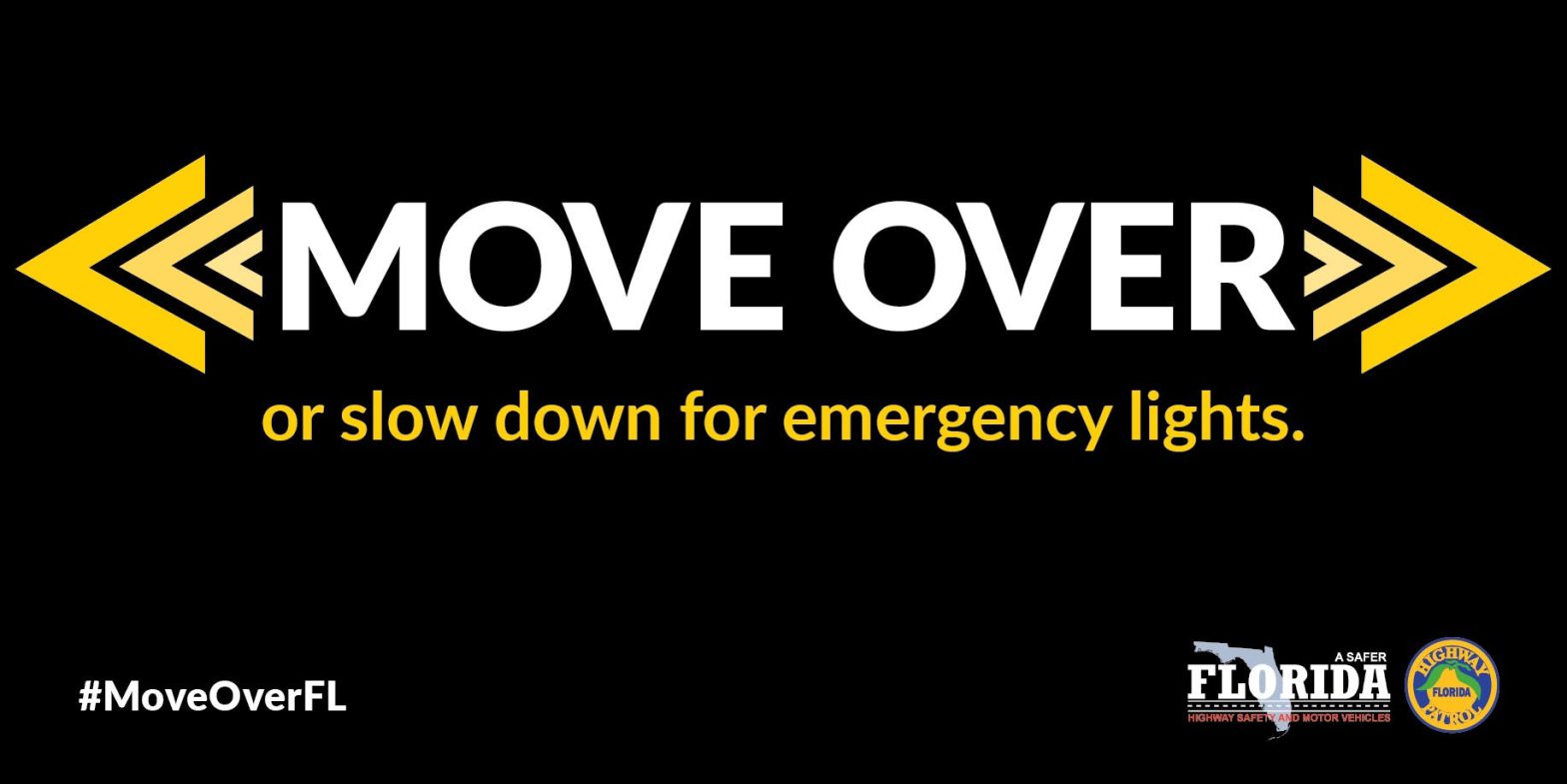
January is Move Over Month and the Florida Department of Highway Safety and Motor Vehicles urges all motorists to move over for emergency and service vehicles stopped along the roadway.
Preliminarily in 2017, there were 212 crashes and almost 17,000 citations issued for motorists failing to move over. DHSMV and the Florida Highway Patrol are partnering with the Florida Police Chiefs Association, Florida Sheriffs Association, Florida Department of Transportation and AAA to ensure all law enforcement, first responders, service and utility workers and Road Rangers are safe in 2018.
"The Move Over Law protects those who work on the side of the roadway each day and ensures that they make it home safely to their families," said DHSMV Executive Director Terry L. Rhodes. "Law enforcement, first responders, service and utility vehicles provide critical services to motorists in one of the most dangerous work environments.
"It is imperative that motorists abide by the law and move over or slow down for these brave professionals so that they can do their job and arrive alive."
DHSMV educates new and young drivers on the Move Over Law with information in the driver handbook. Statistically, however, it older drivers (ages 30-60) who may have received their license before the law going into effect in 2002 who are less likely to move over or slow down.
The Move Over Law states that drivers must move over as soon as it is safe to do so for any authorized law enforcement, emergency or service vehicles displaying any visible signals while stopped on the roadside, including Road Rangers, sanitation vehicles and tow trucks.
When motorists cannot vacate the lane closest to the emergency or service vehicle, they must slow to a speed that is 20 miles per hour less than the posted speed limit. Failure to yield or move over puts law enforcement officers, emergency first responders and public service workers in danger.
This article originally appeared on Crestview News Bulletin: Motorists: Move over or slow down for first responders
